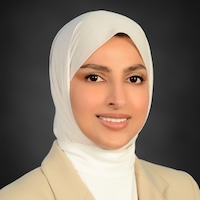
Improving Air Quality in Cities: Forecasting Air Pollution in Kuwait
in collaboration with Kuwait College of Science and Technology
LSE PI: Dr Ghita Berrada
KU PI: Dr Huda AlRashidi
Duration: 1 February 2025 - 1 February 2027
As urbanisation and industrial activities continue to accelerate, air quality, particularly the concentration of particulate matter (PM), has become a major environmental concern. PM2.5, in particular, presents significant health risks, especially in regions like Kuwait where rapid urban growth and industrial activities contribute to high pollution levels.
This research aims to enhance the accuracy of PM2.5 concentration forecasts in Kuwait by employing advanced deep learning models, addressing the limitations of traditional machine learning (ML) methods. The primary contribution will be to compare traditional ML techniques with deep learning models to determine which approach provides more precise, region-specific predictions. In doing so, we will address existing challenges such as data quality and the need for improved datasets for long-term forecasting, enabling a better understanding of the complex spatial-temporal patterns of air pollution. By improving forecasting accuracy, the study will provide valuable insights for the development of effective environmental policies and public health interventions, ultimately contributing to improved air quality management and environmental sustainability in Kuwait and the wider GCC region. This research will advance the understanding of AI applications in air pollution prediction, providing a foundation for more informed decision-making to protect public health and the environment.
This project forms part of Kuwait Programme, funded by the Kuwait Foundation for the Advancement of Science (KFAS).
A hot and dusty scene with Kuwaiti flags hazy in the orange sand. (C) Imago / Alamy Stock Photo
Principal Investigators

Ghita Berrada | Principal Investigator
Ghita Berrada is Assistant Professorial Lecturer at the LSE Data Science Institute and a visiting lecturer at the School of Life Course & Population Sciences at King’s College London. In 2015, she completed a PhD in Computer Science from the University of Twente, whose goal was to design a medical data sharing platform, using EEGs (i.e electroencephalograms) as example of medical data, so as to maximise the accessibility of the data/evidence and reduce the misdiagnosis risk.

Huda Alrashidi | Co-Principal Investigator
Dr Huda Alrashidi is Assistant Professor at Kuwait College of Science and Technology. She received her Ph.D. in Computer Science at the University of Warwick in United Kingdom. Dr Alrashidi’s research is focused on text analytics, machine learning, and natural language processing, with a focus on advancing education and healthcare. Her pioneering work involves developing automated analysis techniques to assess reflective writing in computer science education.